
Imagine a Web3 world where your identity is truly yours: portable, private, and usable across dozens of blockchains and DeFi apps. This vision is rapidly materializing thanks to idOS (Identity Operating System), a decentralized protocol designed to give users self-sovereign control over their digital identities. In a fragmented ecosystem where each dApp or chain often requires separate onboarding and KYC, idOS stands out by enabling seamless, compliant, and privacy-preserving identity management across more than 40 blockchain networks.

Why Self-Sovereign Identity Matters in Web3
The explosion of DeFi, NFTs, and cross-chain protocols has made digital identity more crucial than ever. Traditional models force users to repeatedly submit sensitive data for every new platform, increasing both friction and risk. Self-sovereign identity wallets address this by letting individuals own, manage, and selectively share their credentials, no central authority required.
This approach aligns with the latest research on decentralized identity solutions (idos.network). Instead of isolated silos, users can link multiple wallets into a single portable profile. Credentials such as KYC or reputation become reusable assets that travel with you from Ethereum to NEAR to Gnosis and beyond. The result? Enhanced interoperability, reduced onboarding time, and dramatically improved privacy.
How idOS Delivers Portable Identity Across 40 and Blockchains
idOS portable identity is built on several innovative pillars:
- User-Controlled Data: Every individual creates an encrypted profile on idOS. Access permissions are fully in the user’s hands, grant or revoke at will for any app or service.
- Chain-Agnostic Interoperability: idOS is designed from the ground up to work across diverse ecosystems including Ethereum, NEAR, Aleph Zero, Gnosis, and others (rss.globenewswire.com). This broad compatibility ensures your credentials are not locked into one network.
- MPC Security: Through its partnership with Partisia Blockchain, idOS leverages Multi-Party Computation (MPC) so that no single entity ever has access to your private keys (idos.network blog). Key management is distributed for optimal privacy.
- Decentralized Storage: User data lives on a network of distributed nodes rather than centralized servers. Encryption ensures only authorized parties can view or use your information.
- Compliance First: With GDPR-compliant architecture (rss.globenewswire.com), users can confidently manage their identities without sacrificing regulatory requirements.
Key Benefits of Using idOS for Cross-Chain Self-Sovereign Identity
-
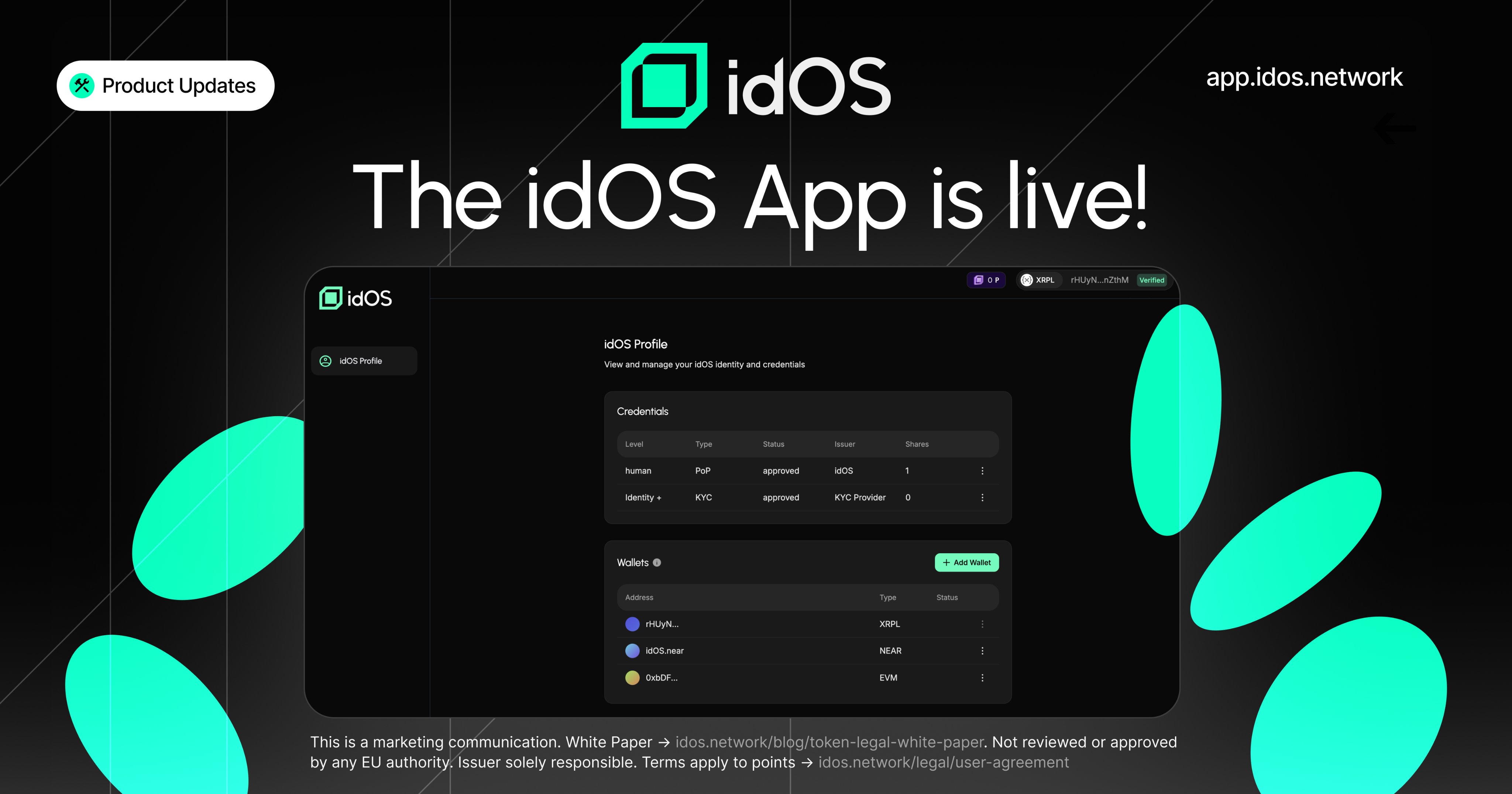
Unified Identity Across 40+ Blockchains: idOS enables users to link multiple wallets and digital identities into a single, portable profile, streamlining access to decentralized applications (dApps) and DeFi platforms across networks like Ethereum, NEAR, Gnosis, and Aleph Zero.
-
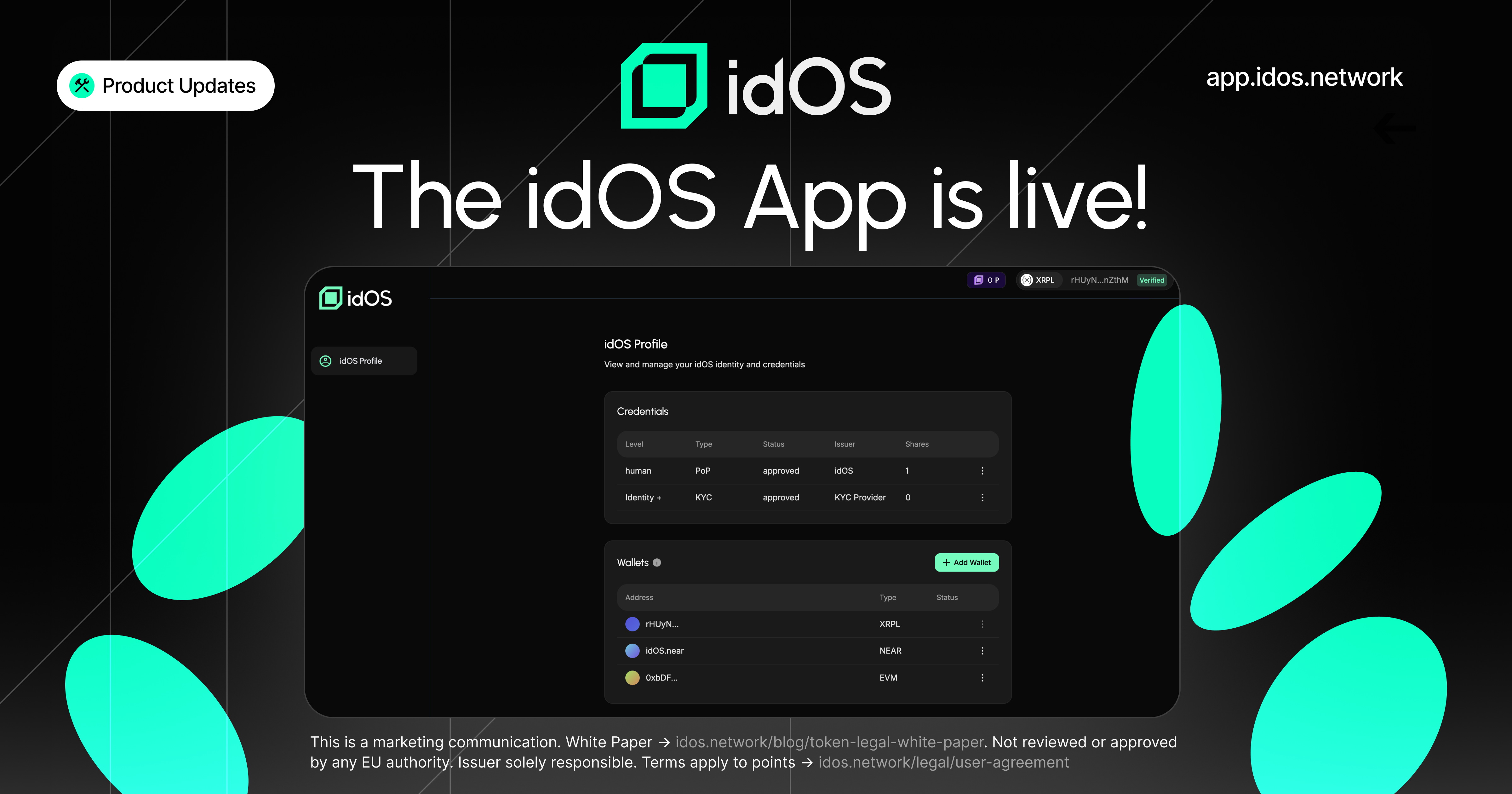
User-Controlled, Self-Sovereign Data Management: With idOS, individuals maintain full control over their personal data, granting or revoking access as needed, and ensuring privacy and autonomy in line with self-sovereign identity (SSI) principles.
-

Chain-Agnostic Interoperability: idOS is designed to work seamlessly across diverse blockchain ecosystems, allowing users to carry credentials, reputation, and compliance checks between platforms without friction.
-
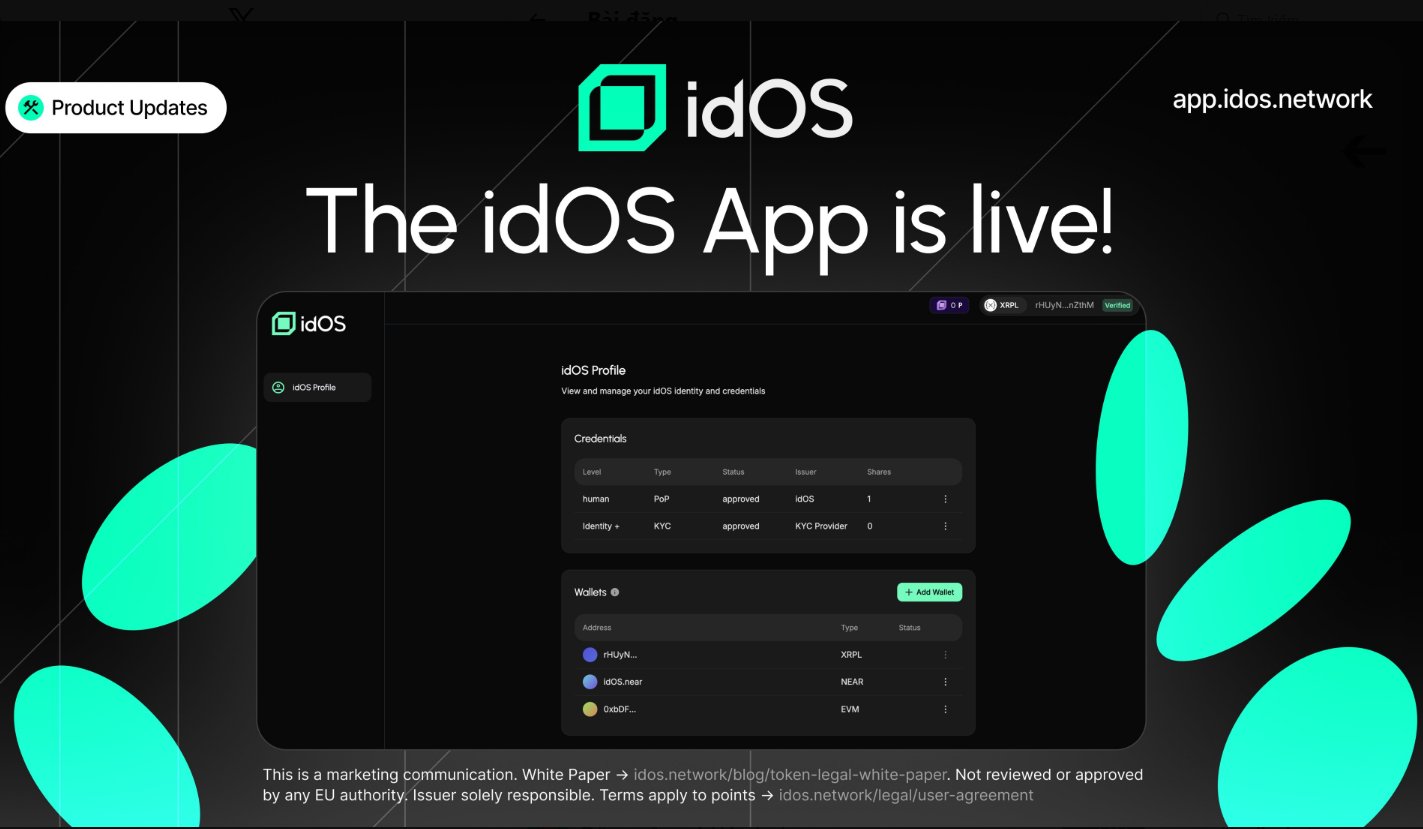
Privacy-Preserving Compliance: The protocol supports privacy by design and is built to comply with regulations like GDPR, enabling secure Know Your Customer (KYC) and anti-money laundering (AML) processes without exposing sensitive information.
-
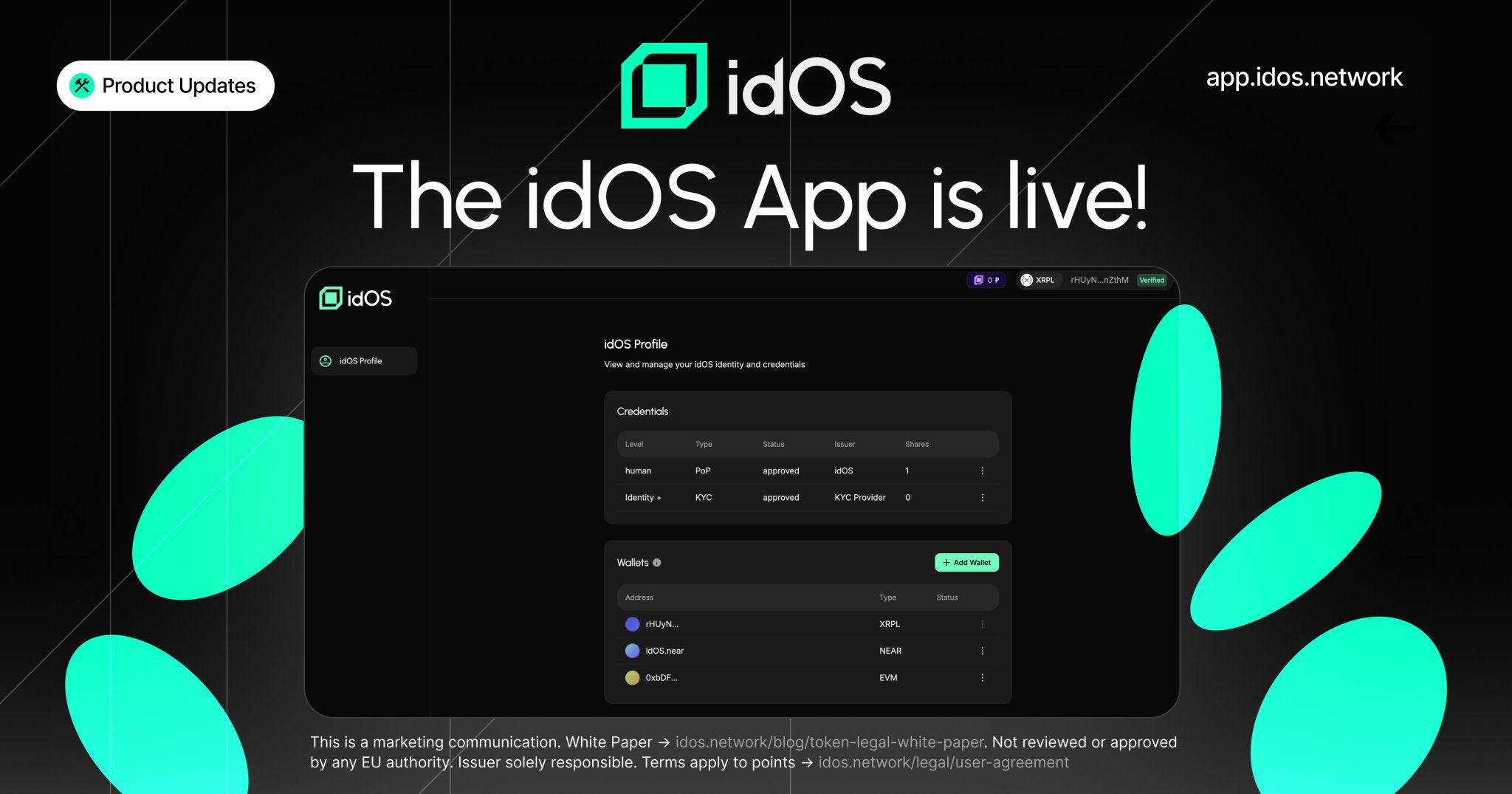
Decentralized, Secure Data Storage: User identity data is encrypted and distributed across a network of nodes, eliminating reliance on centralized servers and reducing the risk of single-point failures or data breaches.
-
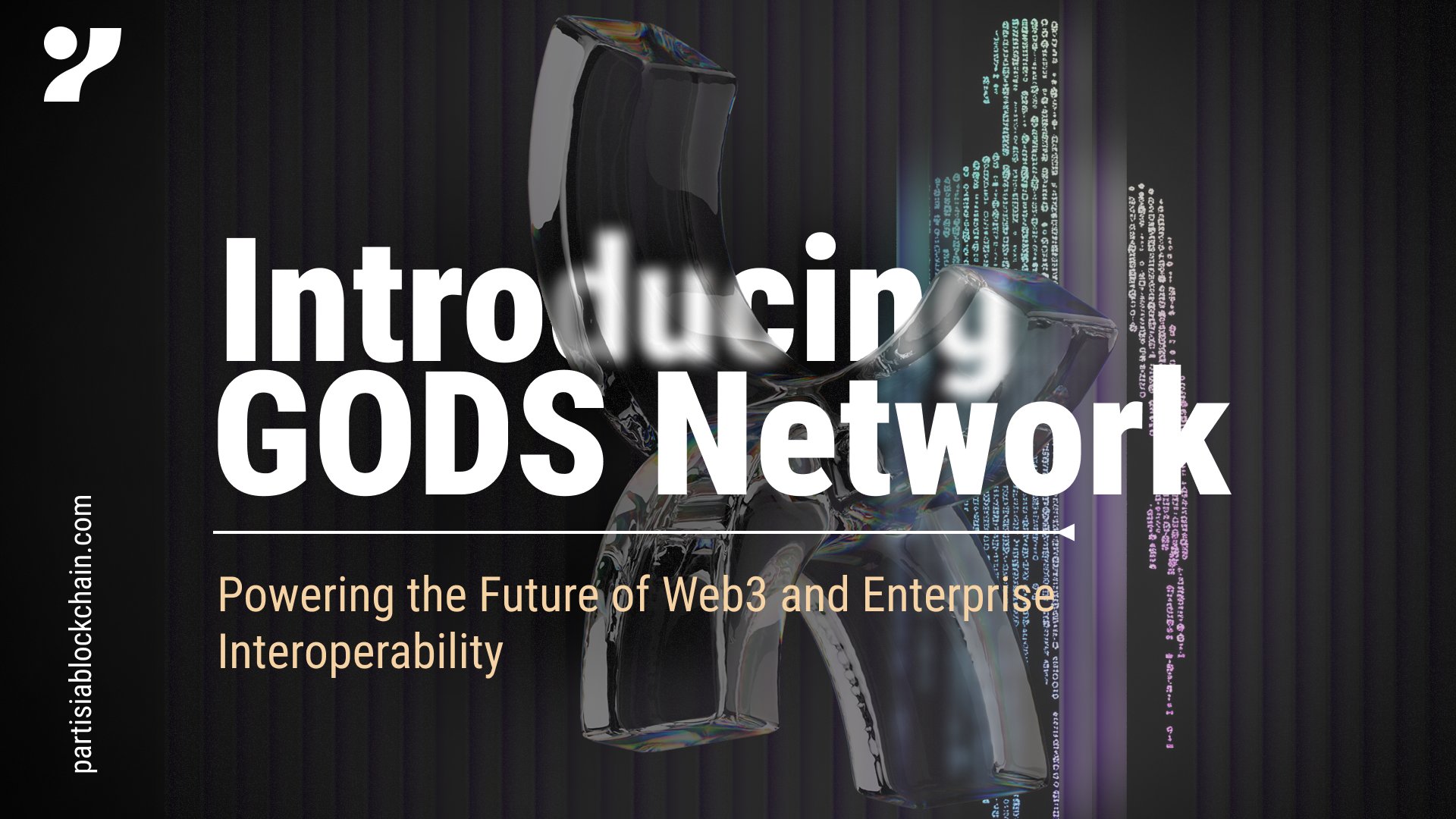
Advanced Security with Multi-Party Computation (MPC): Through integration with Partisia Blockchain, idOS uses MPC technology to manage private keys, ensuring no single party has full access and enhancing overall security and privacy.
-
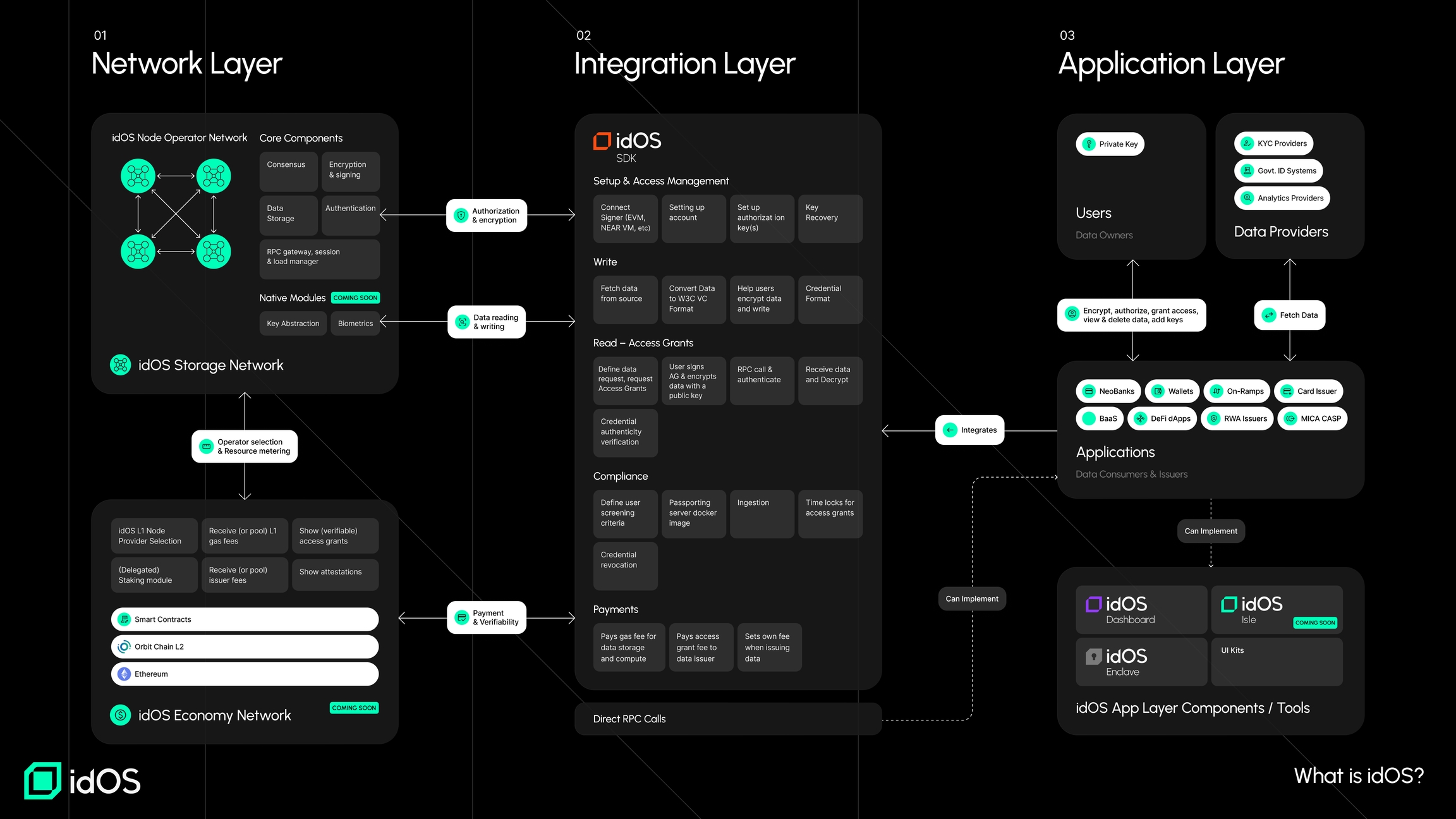
Developer-Friendly Integration: The idOS SDK allows developers to easily add decentralized identity authentication and data access management to their dApps, improving user onboarding and reducing compliance burdens.
-
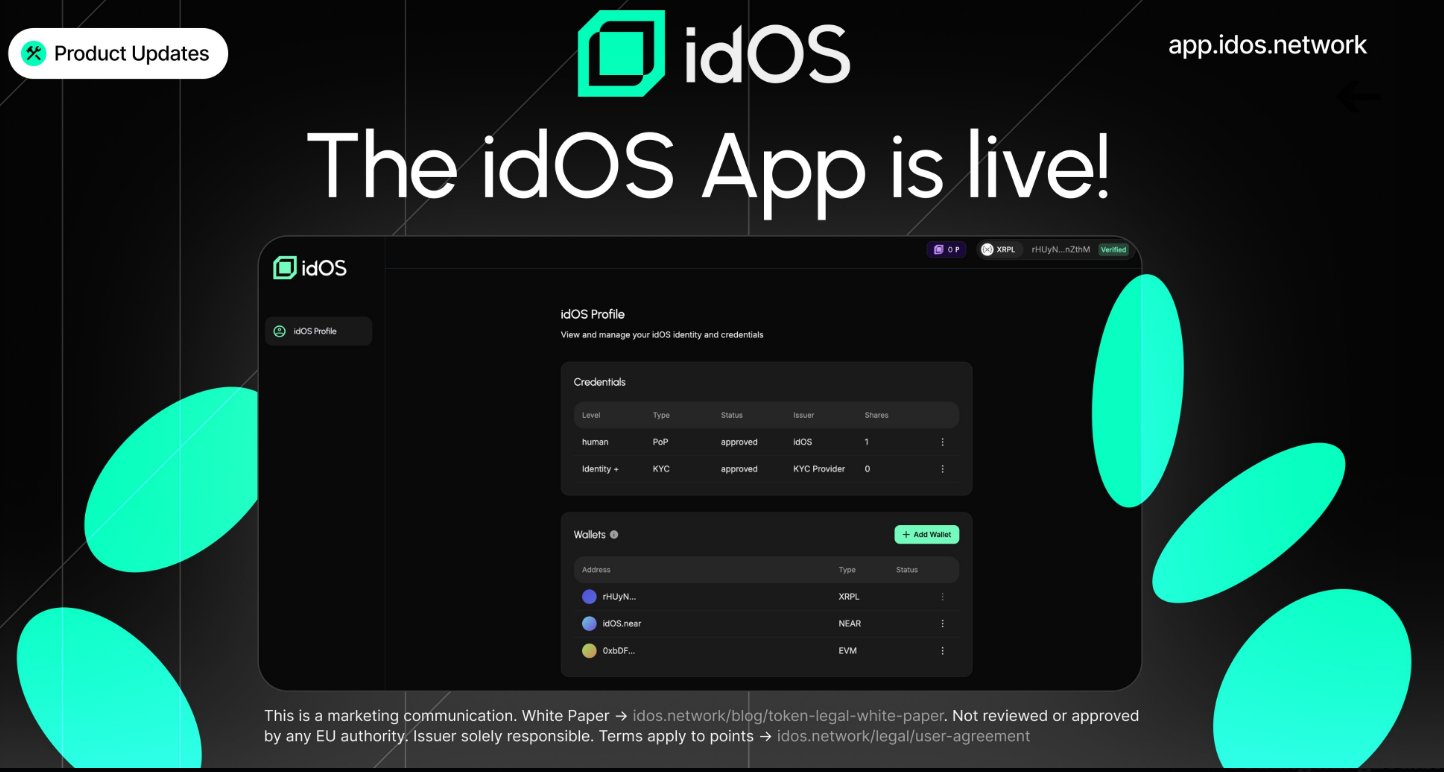
Strong Industry Backing: idOS is supported by a consortium including Circle, Ripple, and NEAR Foundation, with $4.5 million in funding, ensuring robust development and ecosystem growth.
The Real Value: Reusable KYC and Compliance Across Networks
KYC remains one of the largest pain points in DeFi onboarding. Each platform typically requires redundant checks, costly for providers and tedious for users. With idOS’s reusable KYC across blockchains, once you’ve completed verification with a trusted provider integrated into the protocol, you can reuse those credentials anywhere within the growing idOS ecosystem.
This not only shortens onboarding times but also reduces exposure risk by minimizing repeated data submissions. For developers building decentralized applications (dApps), integrating the idOS SDK means they can offer secure authentication without ever handling sensitive user information directly (idos.network). It’s a win-win: better compliance for platforms and greater privacy for users.
As the demand for privacy-preserving KYC in Web3 grows, idOS is uniquely positioned to address these challenges. By abstracting away the complexities of cross-chain identity management, it lets users carry their reputation, credentials, and compliance status anywhere in the decentralized world. This is especially relevant for DeFi protocols and NFT marketplaces that span multiple blockchains, where seamless onboarding can be a competitive advantage.
Developers benefit from idOS as well. The protocol’s SDK provides modular integration options, allowing dApps to verify users without ever touching raw personal data. This not only reduces regulatory risk but also fosters trust among privacy-conscious communities. Consortium backing from industry leaders like Circle and Ripple further signals strong confidence in idOS’s vision and technical execution (idos.network).
Privacy-Preserving KYC: A New Standard for Web3
One of the most transformative aspects of idOS is its approach to privacy-preserving KYC (Know Your Customer). Traditional KYC processes are a bottleneck, often requiring users to hand over sensitive documents repeatedly. With idOS, once your identity has been verified by a trusted provider within its network, you can prove compliance across any supported blockchain or dApp, without exposing your underlying data each time.
This paradigm shift not only streamlines the user experience but also dramatically reduces the risk of data breaches. Multi-party computation (MPC) ensures that even if one node is compromised, your private keys and credentials remain safe (idos.network blog). For institutions seeking to onboard large user bases into DeFi or digital asset platforms, this level of security is essential.
Top Use Cases for Portable Self-Sovereign Identity with idOS
-
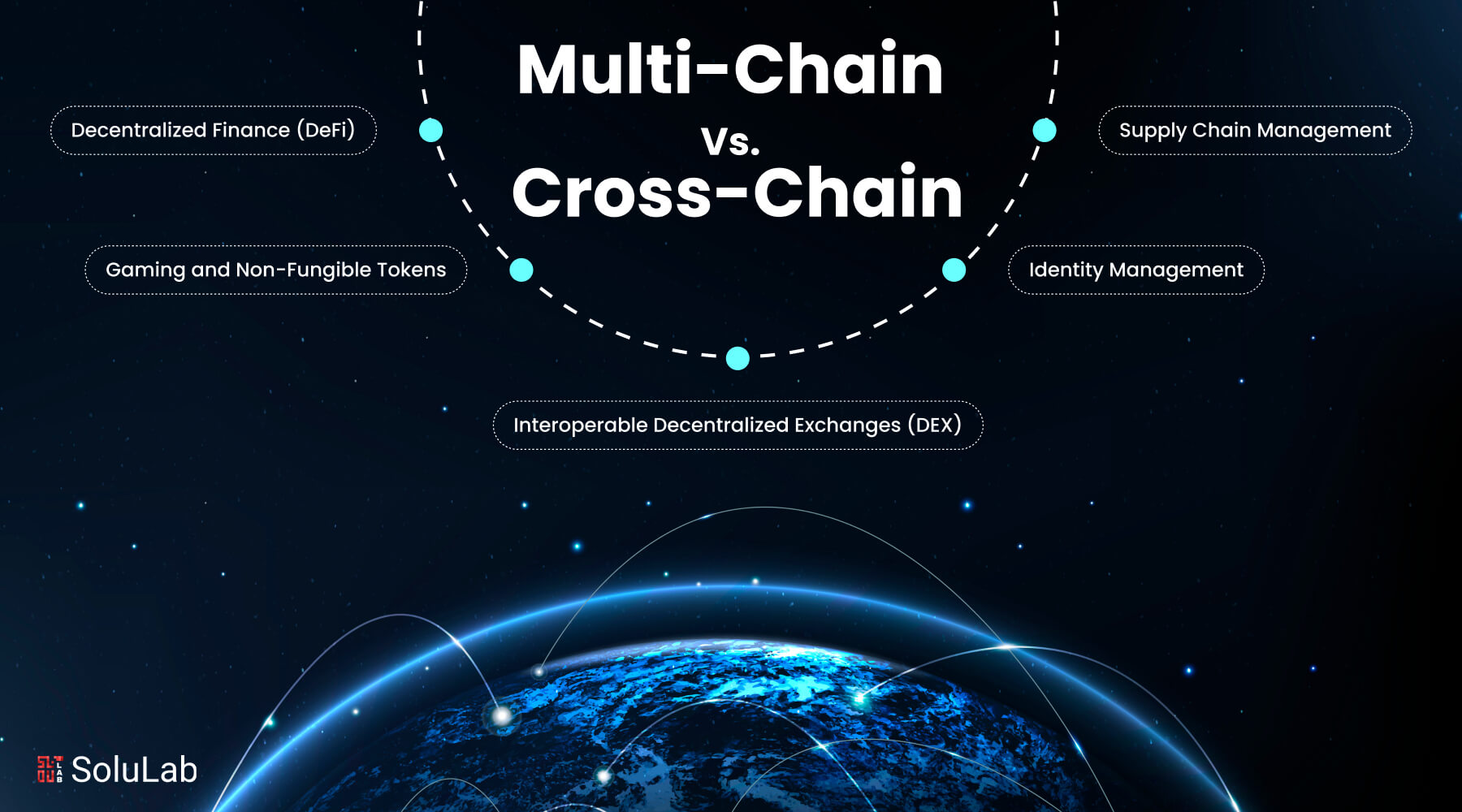
Cross-Chain DeFi Access: Use a single, self-sovereign idOS identity to seamlessly authenticate and manage accounts across leading DeFi platforms on Ethereum, NEAR, Gnosis, Aleph Zero, and more—eliminating the need to create separate profiles or repeat KYC processes.
-
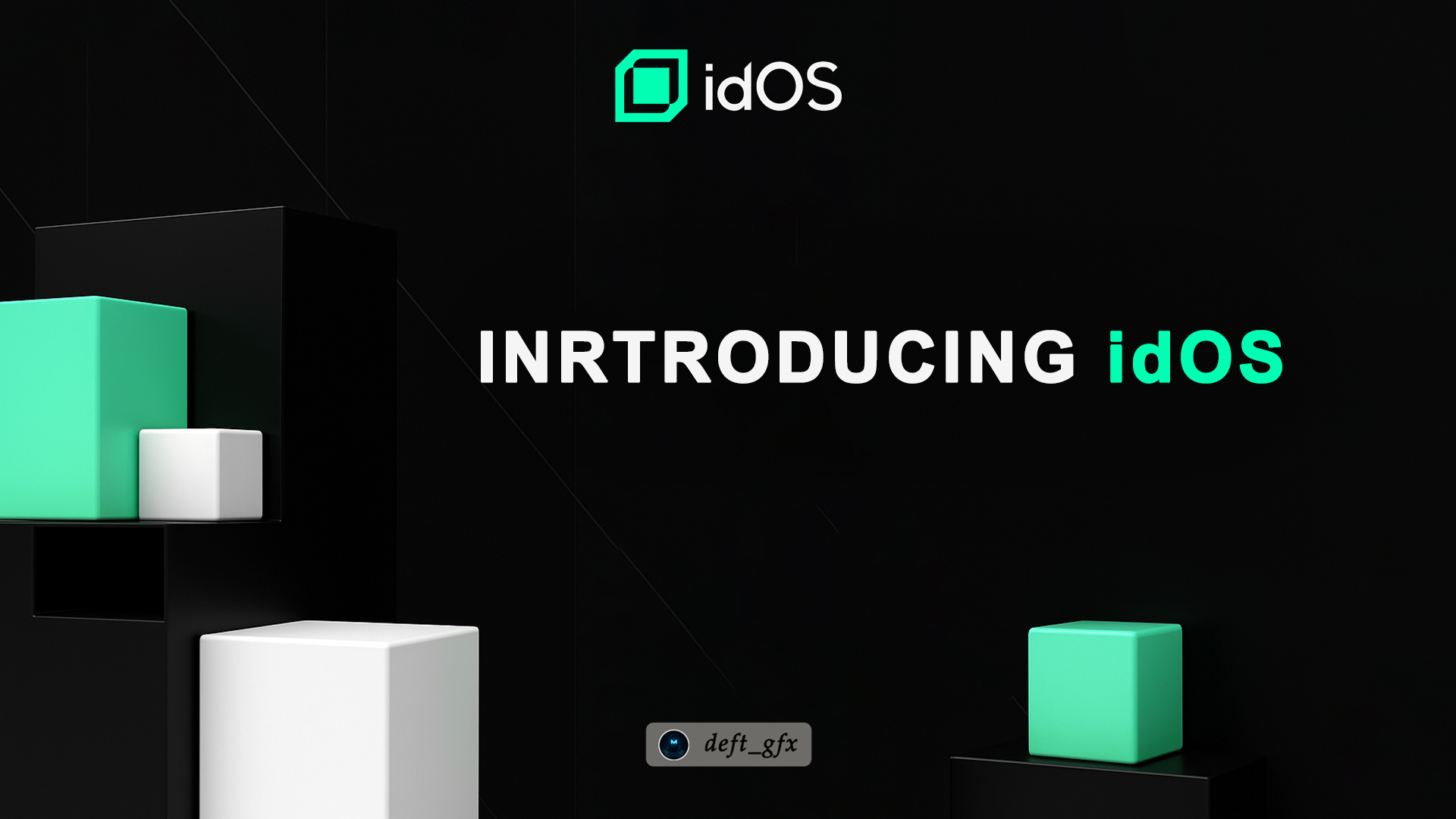
Reusable KYC and Compliance: Securely store and reuse your Know Your Customer (KYC) credentials with idOS, enabling instant onboarding to compliant DeFi apps and exchanges while maintaining privacy and regulatory adherence.
-
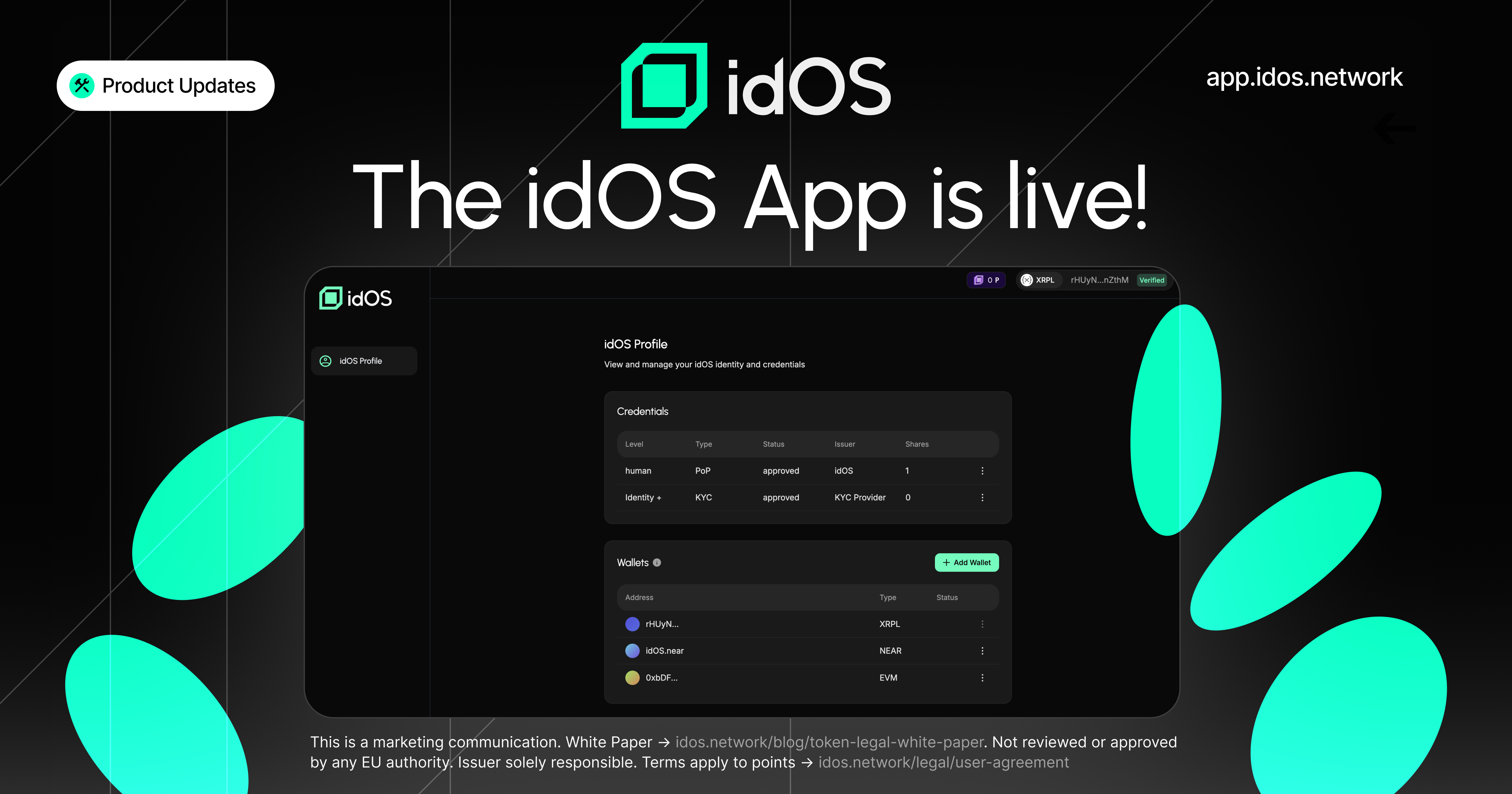
Unified Wallet and Reputation Management: Link multiple blockchain wallets under a single idOS identity, allowing you to carry your reputation, credentials, and transaction history across different networks and dApps.
-
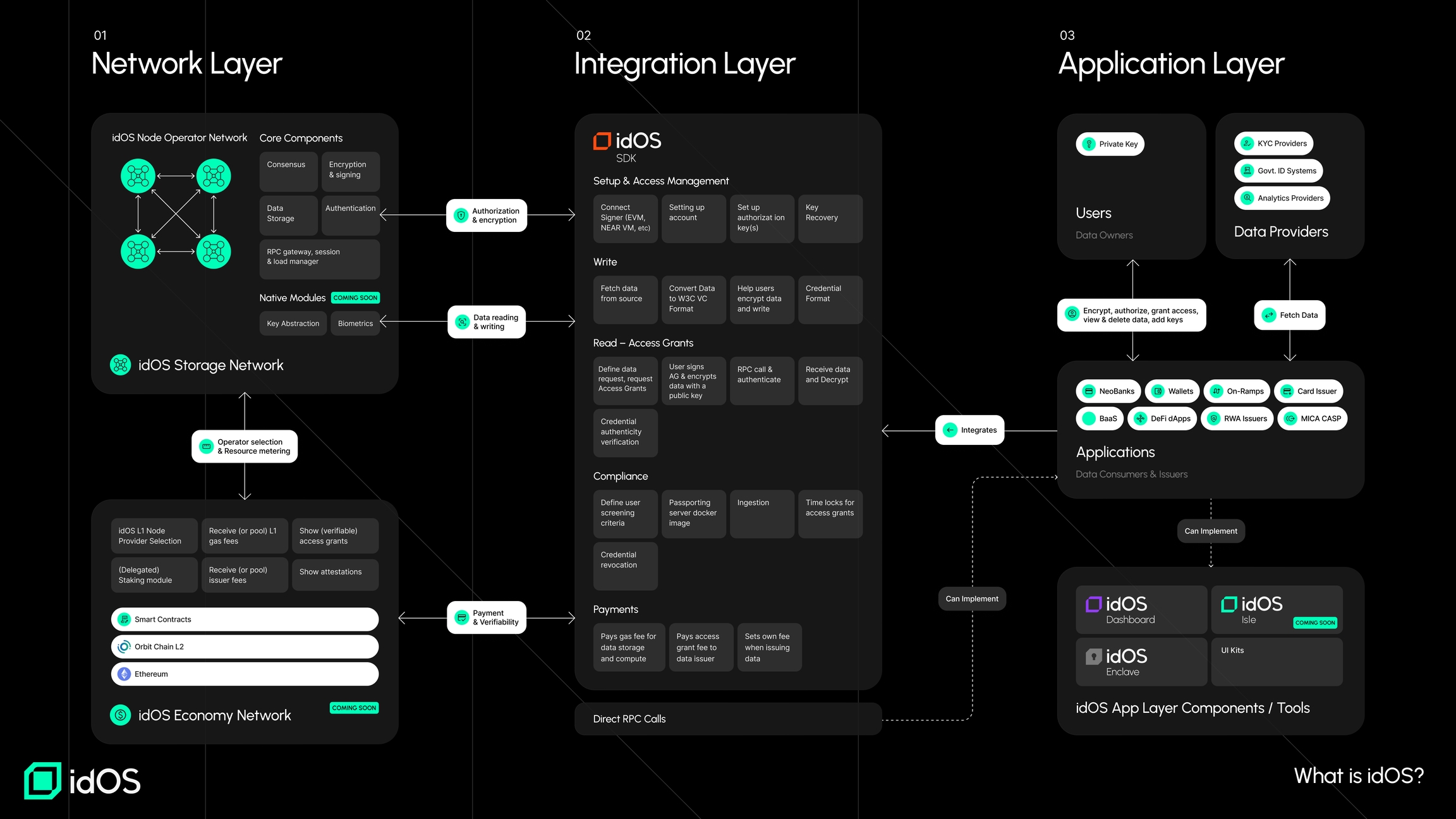
Decentralized Digital Identity for Web3 Applications: Authenticate to a wide range of web3 dApps, NFT marketplaces, and DAOs using your idOS profile, ensuring privacy-preserving, user-controlled access without exposing sensitive data.
-

Interoperable Identity in Public Services: Leverage idOS to provide verifiable credentials for cross-border public transportation, e-government services, or education platforms that require trusted, portable digital identity across jurisdictions.
The Road Ahead: Interoperable Identity as a Foundation Layer
The significance of interoperable digital identity extends far beyond simple login solutions. As more sectors, finance, gaming, public transportation, embrace decentralized architectures, having a portable self-sovereign identity will be foundational for user-centric innovation (idos.network). Imagine using your verified credentials to access services in different countries or seamlessly participate in cross-chain DAO governance, all without sacrificing control over your personal information.
idOS’s chain-agnostic approach future-proofs its utility as new blockchains emerge and regulatory landscapes evolve. By letting users own their data and selectively share it across platforms, idOS lays the groundwork for a more secure and inclusive digital economy.
“Decentralized identity isn’t just about convenience, it’s about shifting power back to individuals while maintaining compliance and security. “






